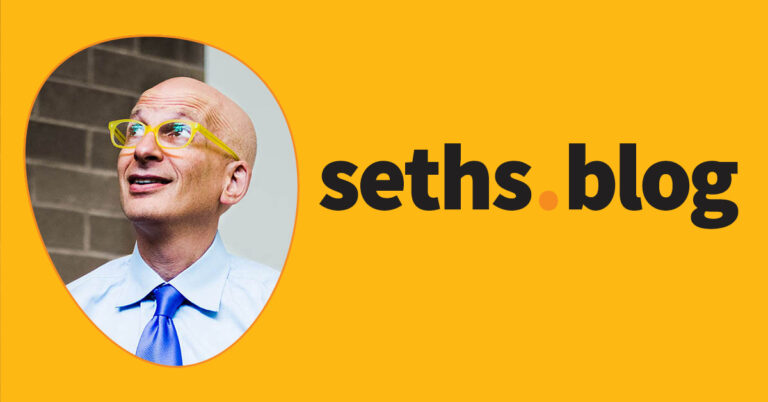Freedom is something we desire. The freedom to choose, to speak up, to produce, to follow our passions and our dreams.
And organizations in search of efficiency, shortcuts or profits often argue for freedom as well. The freedom to organize their production and to go to market without regulation or hassle.
Our actions, though, have consequences. That power plant might be venting steam into the river that millions depend on. Your upstairs neighbor’s loud music at midnight is your sleep interrupted. Your worse might be someone else’s better (and vice versa).
The temptation is to deny the externalities or to minimize their impact. Teenager thinking is to argue for freedom by pointing out that nothing bad will happen, or if something does, it won’t matter much, and even then, it won’t really be your fault. Denial is tempting, but it’s not helpful.
It’s more useful and productive to do precisely the opposite.
The best way to achieve freedom is to take responsibility for the actions you’re taking. And the best way to be clear that you’re taking responsibility is to highlight the externalities and own them.
When you acknowledge what we can easily see, it’s much easier to trust you.
List for us all the negative consequences of your policy, output or actions, and then tell us how you’ll remedy them.
Freedom isn’t a clever plan to be let off the hook. It’s a deliberate path to being on the hook.
